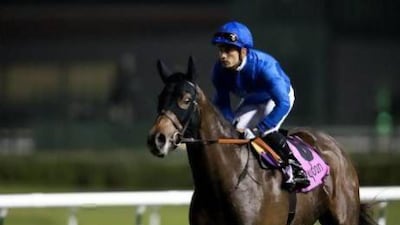The Emirates Racing Authority (ERA) remain convinced that their drug-detection procedures are effective despite horses under the care of Godolphin trainer Mahmoud Al Zarooni returning positive samples in England.
On Monday, the British Horseracing Authority (BHA) revealed that 11 of the 45 horses tested at Al Zarooni's stables in Newmarket tested positive for steroids.
None of the 11 horses had run in 2013, but several, including Certify, were entered in races within the next 10 days.
The tests were carried out as part of the BHA's "testing in training" programme, and Al Zarooni was paid a visit on April 9 after Mariner's Cross and Lyric Of Light tested positive for propoxyphene in August.
Drugs testing of horses is carried out by the ERA on all race winners and that net is widened to horses placed in Group and Listed races.
The ERA also tests a randomly selected group of runners both pre- and post-race at the discretion of the ERA stewards and veterinary departments.
"The ERA is extremely confident that performance-enhancing substances were not used during the Dubai World Cup Carnival or any other races conducted in the UAE and that if they were, the testing practices of the ERA would have detected the use of such substances," Gerard Bush, chief steward of the ERA, said yesterday.
There is an increased emphasis on testing at the World Cup Carnival due to its international nature and although most cases rarely see the light of day, the most high-profile case this season was that of Mike de Kock's Amanee.
Amanee finished second to subsequent Dubai Duty Free winner Sajjhaa in the Group 2 Cape Verdi in January but was disqualified after traces of methocarbamol, a muscle relaxant, were found in the filly's urine.
The Equine Forensic Unit had the tests confirmed by the Singapore Turf Club laboratory and De Kock was fined Dh10,000.
Follow us

